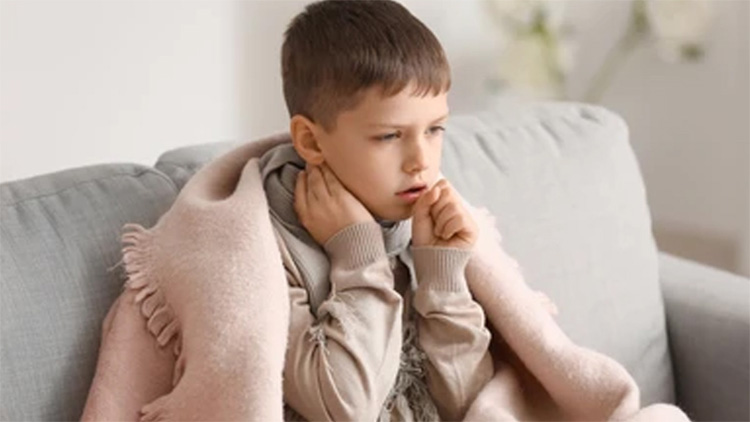Whooping cough outbreak: Symptoms to watch out for; treatment and prevention tips by experts
Whooping cough outbreak has left health authorities across different countries worried. Apart from several deaths reported in China, cases have also been reported in US, UK, Philippines, Czech Republic and the Netherlands.
More common in children and infants, this deadly infection can be a cause of concern in the coming days. Thirteen deaths were reported in China in the first two months of 2024, with 32,380 cases reported — more than 20 times higher than a year earlier, according to the National Disease Control and Prevention Administration.
What is whooping cough?
Whooping cough is a highly contagious bacterial infection, caused by bacteria Bordetella pertussis, and is common in infants and young children. The infection transmits easily from person to person mainly through respiratory droplets produced by infected person while coughing or sneezing.
“It is transmitted primarily through respiratory droplets. The symptoms include runny nose, dry cough which classically sounds like a whoop. Fever, sneezing, watery eyes, vomiting etc. Prevention is through vaccination. The three primary doses are given at 6, 10 and 14 weeks followed by boosters. The general measures should always be considered like hand hygiene and covering mouth if a child is sneezing or coughing,” Dr Shreya Dubey- Consultant – Paediatrics & Neonatology, CK Birla Hospital, Gurugram told HT Digital.
“It is characterized by severe coughing fits, followed by a distinctive ‘whooping’ sound as the affected person gasps for air. Whooping cough is different from viral cough as it increases with time rather than showing improvement. It is also called 100 days cough disease. It can also lead to post cough vomiting,” says Dr. Gurmeet Singh Chabbra, Director and HOD – Pulmonology Marengo Asia Hospitals, Faridabad.
Symptoms of whooping cough
“Bacteria damages cilia leading to bronchial inflammation and excessive mucus production, causing the characteristic symptoms of rapid cough, common cold and low-grade fever. Few serious complications like pneumonia, seizures and brain damage can also occur with whooping cough infection,” says Dr Mayank Saxena, Additional Director, Pulmonology, Fortis Noida.
“People with this respiratory infection can present the symptoms such as runny nose, sneezing, mild dry cough and fever. The disease can affect infants and young children severely. If left untreated, whooping cough can lead to long-term disability or death. Patients can develop serious health complications such as lung infection (pneumonia), fits (seizures) and brain damage (encephalopathy) owing to breathing problems or seizures,” says Dr Chabbra.
How’s it diagnosed?
“Diagnosis is usually based on coughing fits in presence of known exposure to disease. Laboratory tests, such as polymerase chain reaction (PCR) or culture of respiratory secretions, can confirm the diagnosis by detecting the presence of Bordetella pertussis bacteria,” says Dr Saxena.
Prevention
DTaP vaccine is recommended for children while Tdap vaccines can be given to adults that provides protection against pertussis.
“Preventing whooping cough is essential using DTaP vaccine, which is recommended for children at 2, 4, 6, and 15-18 months of age, with a booster dose at 4-6 years old. Adults & pregnant women can receive the Tdap vaccine, which provides additional protection against pertussis. in addition, good hand hygiene, covering face while coughing/sneezing and avoiding close contact with sick individuals can help reduce the spread,” says Dr Saxena.
“Vaccination is the most effective measure to prevent this infection. The DTaP vaccine is routinely administered to infants and young children in multiple doses, starting at 2 months of age as it protects against diphtheria, tetanus, and pertussis. Boosters are recommended for adolescents and adults. Pertussis-containing vaccines are safe even for expectant mothers. Pregnant women are advised to receive the whooping cough vaccination between 20 and 32 weeks to boost their protection against whooping cough. Vaccination at this stage of pregnancy can be beneficial for fetus as the mother passes on whooping cough antibodies to their growing baby. This will provide the baby protection after birth — even before they are old enough to get immunised,” says Dr Chabbra.
“Treatment usually involves antibiotics, supportive care like hydration/rest, and symptomatic management,” says the expert.
“Preventive aspect includes wearing mask. Post exposure antimicrobial prophylaxis to all close contacts within 21 days of onset of cough of index patient is advised. Avoid sending children to school/daycare/gatherings who are suspected to have or are suffering from whooping cough,” says Dr Chabbra.


Comments are closed.